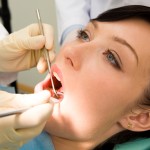
While the gag reflex is a natural defence mechanism to protect the throat and pharynx from foreign objects and exaggerated gag reflex can cause problems during dental treatment. Gagging patients have been categorised into two main groups, somatogenic and psychogenic with preventive management strategies involving pharmacological and non-pharmacological techniques.
The aim of this updated Cochrane review was to assess the effects of pharmacological and non-pharmacological interventions for the management of gagging in people undergoing dental treatment.
Methods
Searches were conducted in the Cochrane Oral Health’s Trials Register, the Cochrane Central Register of Controlled Trials (CENTRAL) Medline, Embase , CINAHL ,AMED, the proceedings of the International Association for Dental Research (IADR) online (2001 the US National Institutes of Health Ongoing Trials Register (ClinicalTrials.gov) the World Health Organization International Clinical Trials Registry Platform databases with no restrictions. Forwards citation searching on the included studies was conducted using Google Scholar. Randomised controlled trials (RCTs) involving patients given a pharmacological or non-pharmacological intervention to manage gagging that interfered with dental treatment were considered. Study selection, data extraction and assessment of risk of bias was carried out independently and in duplicate following standard Cochrane methodology. The overall certainty of the evidence was assessed using GRADE.
Results
- 4 RCTs involving 328 patients (263 adults, 65 children) were included.
- All 4 trials were considered to be at unclear risk of bias.
- One trial compared acupuncture and acupressure (with thumb, device, or sea band) at P6 point (point located three-finger breadths below the wrist on the inner forearm in between the two tendons) to sham acupuncture and acupressure. They also studied the effects of adding sedation to both the intervention and control groups. Another study compared acupuncture at P6 point to sham acupuncture. Both trials reported on completion of dental treatment and reduction in gagging (assessor and patient reported) as their outcomes.
- Acupuncture at P6 showed very low certainty evidence regarding: –
- The successful completion of dental procedure, RR = 1.78 (95%CI; 1.05–3.01), [2 RCTs, 59 patients].
- Reduction in gagging in comparison to sham acupuncture, RR = 2.57 (95%CI; 1.12 – 5.89), [ 1RCT, 26 patients].
- Acupuncture at P6 with sedation did not show any difference when compared to sham acupuncture with sedation, RR = 1.08 (95%CI; 0.91 – 1.28), [1RCT one trial, 34 patients very low-certainty evidence].
- Acupressure using thumb pressure with or without sedation showed no clear difference in completing dental procedure or reduction in gagging when compared to sham acupressure with or without sedation [very low-certainty evidence].
- Acupressure at P6 with device when compared to sham acupressure showed very low-certainty evidence regarding the
- successful completion of dental procedure, RR = 2.63 (95%CI;1.33 – 5.18), [1RCT, 34 patients].
- reduction in gagging, RR = 3.94 (95%CI; 1.63 – 9.53) [1RCT, 34 patients].
- However, device combined with sedation showed no difference for either outcome.
- Acupressure using a sea band with or without sedation showed no clear difference in completing dental procedure or reduction in gagging when compared to sham acupressure with or without sedation. [very low-certainty evidence].
- Laser at P6 when compared to dummy laser application during dental procedure showed very low- certainty evidence of a difference in
- absence of gagging, odds ratio (OR) = 86.33 (95%CI; 29.41 – 253.45) [1RCT, 40 patients].
- reduction in gagging MD = 1.80 (95%CI; 1.53 – 2.07), [1RCT, 25 patients].
- No noteworthy adverse effects were reported.
- No trials evaluating any other interventions used to manage gagging in people undergoing dental treatment were identified.
Conclusions
The authors concluded: –
We found very low-certainty evidence from four trials that was insufficient to conclude if there is any benefit of acupuncture, acupressure or laser at P6 point in reducing gagging and allowing successful completion of dental procedures. We did not find any evidence on any other interventions for managing the gag reflex during dental treatment. More well-designed and well-reported trials evaluating different interventions are needed.
Comments
This Cochrane review updates the earlier 2015 version (Dental Elf – 5th Oct 2015) incorporating 3 additional studies. However, the quality of the additional studies is limited which means that the findings are insufficient to determine whether or not the tested interventions are beneficial. As studies have reported gagging ranging from 8 – 44% during some dental procedures additional well conducted and reported studies are needed to benefit this group of patients. The review details a number of key issues that should be taken into consideration when designing future trials.
Links
Primary Paper
Eachempati P, Kumbargere Nagraj S, Kiran Kumar Krishanappa S, George RP, Soe HHK, Karanth L. Management of gag reflex for patients undergoing dental treatment. Cochrane Database Syst Rev. 2019 Nov 13;2019(11). doi:10.1002/14651858.CD011116.pub3. Review. PubMed PMID: 31721146.
Other references
Cochrane Oral Health Group Blog – Open wide! Managing gagging in dental patients
Dental Elf – 5th Oct 2015
Reducing gagging during dental treatment – insufficient evidence for any intervention
